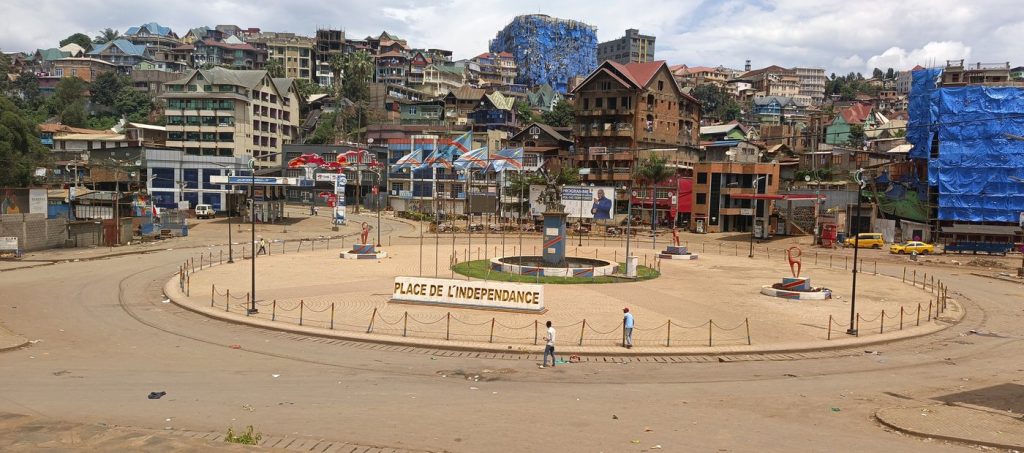On Sunday morning, Rwanda-backed M23 rebels advanced into Bukavu, the second largest city in eastern Congo, capturing the South Kivu province administrative office with little resistance from government forces. Many Congolese soldiers fled the area as the rebels made their significant incursion, following a days-long journey from Goma, a major city they had taken control of late last month. The situation has led to a mixed reaction from the local populace, with some residents cheering on the M23 fighters while other areas remained deserted as people stayed indoors out of fear.
The M23 group stands out among the over 100 armed factions vying for influence in Congo's mineral-rich eastern regions. The United Nations estimates that around 4,000 Rwandan troops are supporting the M23 rebels. Although reports indicated the rebels had reached the heart of Bukavu, it is unclear whether they had full control over the city, which is home to approximately 1.3 million people. Their engagement in Bukavu marks an unprecedented extension of their territorial ambitions, shifting from previous years’ ethnic-based conflicts to a more politically motivated agenda this time around.
In response to the chaos, Congolese President Felix Tshisekedi convened a security meeting in the distant capital of Kinshasa, asserting that while the M23 briefly invaded Bukavu, the Congolese army and allied local militia forces still held control over the city. Observations on Sunday reflected an absence of combat in Bukavu, and Congolese forces were noticeably missing from most areas. Amid the turmoil, Congolese soldiers were seen fleeing alongside thousands of civilians, which led to wide-scale looting and hysteria within the community.
President Tshisekedi had previously warned of the potential for the conflict to spill over into neighboring regions. In Bukavu, local forces are being supported by troops from Burundi, while troops from South Africa bolster Congolese forces in Goma. Burundi's president, Evariste Ndayishimiye, indicated that his country would not take retaliatory action, suggesting that those looking to exploit the situation would not find success. His comments imply a strategic restraint in the midst of escalating tensions.
In a statement from the Congo River Alliance, which includes the M23, Lawrence Kanyuka, the alliance's spokesperson, called for the citizens of Bukavu to maintain control and composure in the face of growing unrest. They reassured that the alliance was dedicated to "defending the people of Bukavu," despite not expressly acknowledging their presence in the city during this critical moment.
The ongoing conflict in Congo is deeply intertwined with a longstanding ethnic strife, as M23 claims to be protecting the rights of ethnic Tutsis within the country. Rwanda alleges that Tutsis face persecution from Hutu groups and former militias connected to the 1994 genocide in Rwanda, which took the lives of approximately 800,000 Tutsis and others. Following this tragic event, many Hutus sought refuge in Congo, eventually forming the Democratic Forces for the Liberation of Rwanda militia. The Rwandan government contends that this group is "fully integrated" into the Congolese military, a claim which the Congolese authorities deny.










